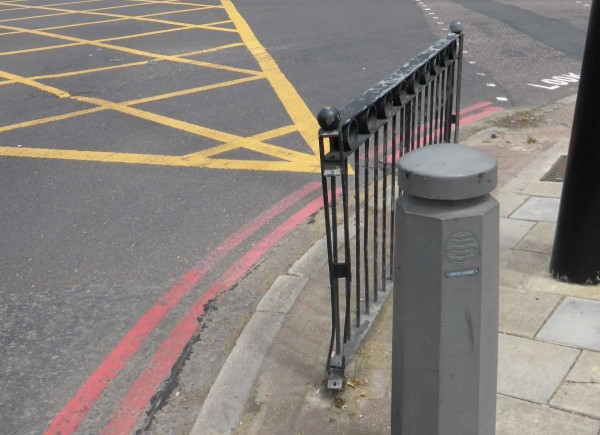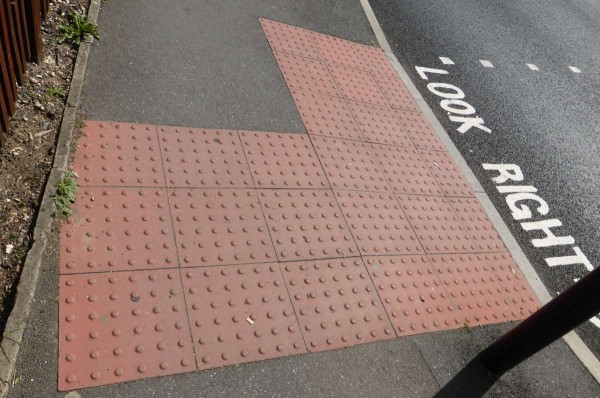Street furniture is also called road furniture. Contrary to how it sounds, it’s not just about places for people to sit. It’s everything added to verges, roads and footpaths to help direct and influence road user behaviour and to assist pedestrians.
Once you’ve looked through this article you will start seeing street furniture much more readily – much of it is quite invisible until you know what you are looking for.
Pedestrian-focussed
Bike racks
Bike racks are study metal structures embedded in the pavement. They have to be strong enough to resist cutting, people pulling them out or people knocking them over. They must also resist corrosion.
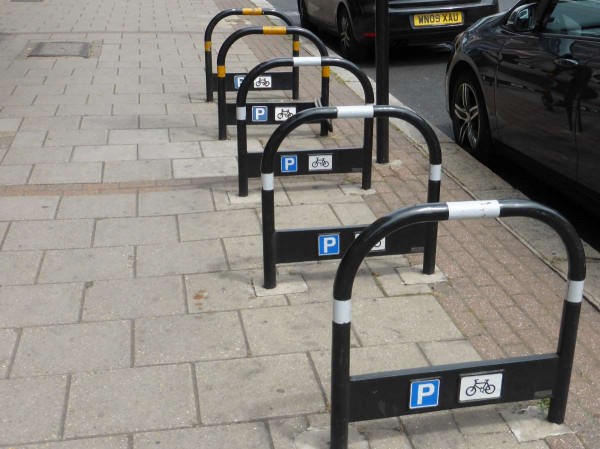
Bus stops
Bus stops can be simply an area of the road marked with a sign or, in busier areas, a covered shelter with electronic signs advising of when the next buses are due.
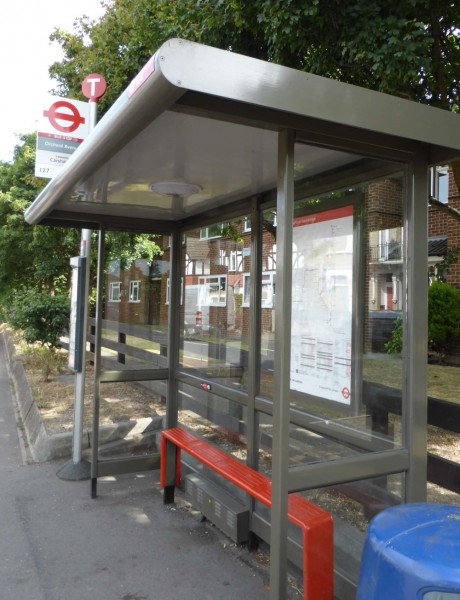
Rubbish bins
Rubbish bins can be plain like the one below, or themed by the local council with emblems or specific design.
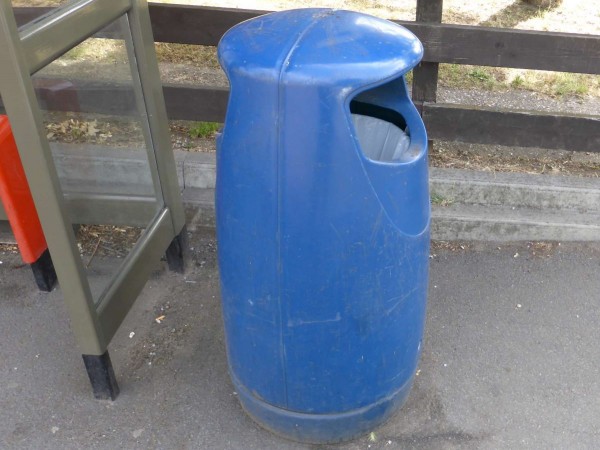
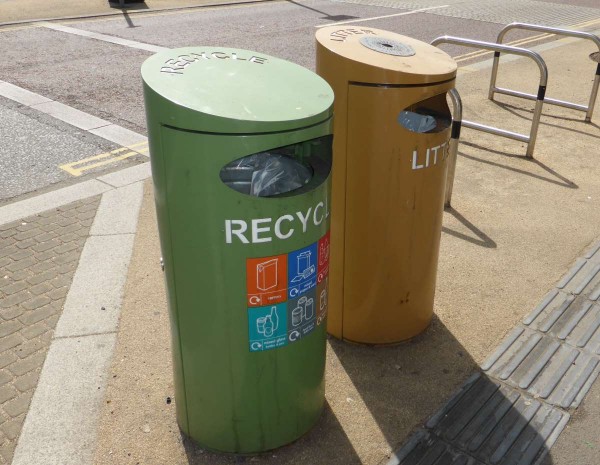
Planter boxes
Planter boxes on the edge of the street beautify it, and help separate pedestrians from cars.
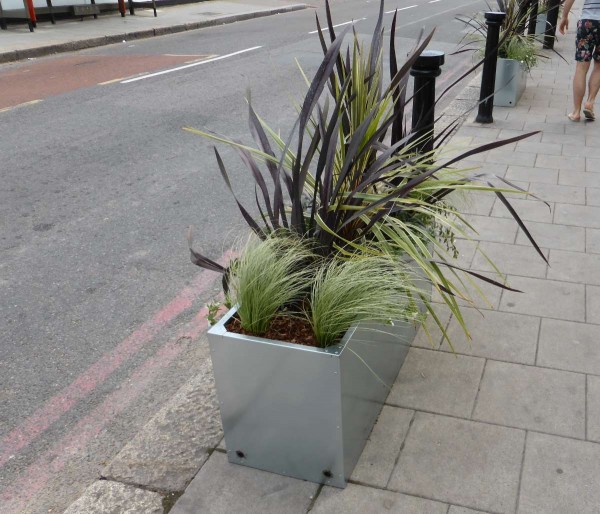
Telephone boxes
Less and less useful these days now that everyone has mobile phones, the traditional red English telephone box is recognisable worldwide.
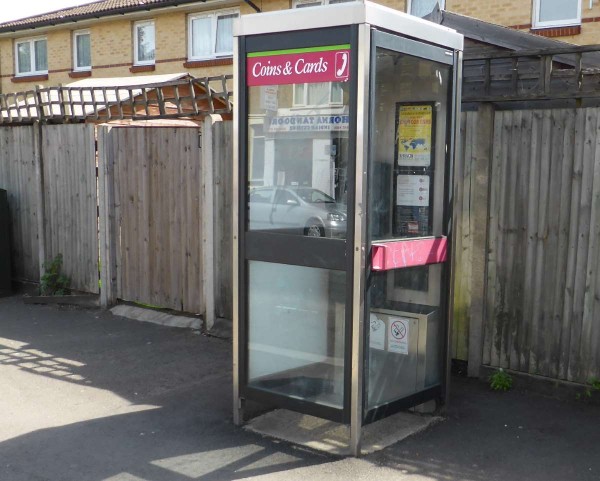
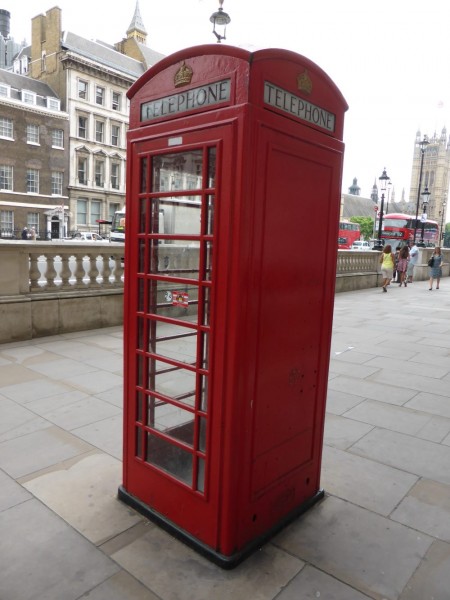
Some modern ones act as wi-fi zones.
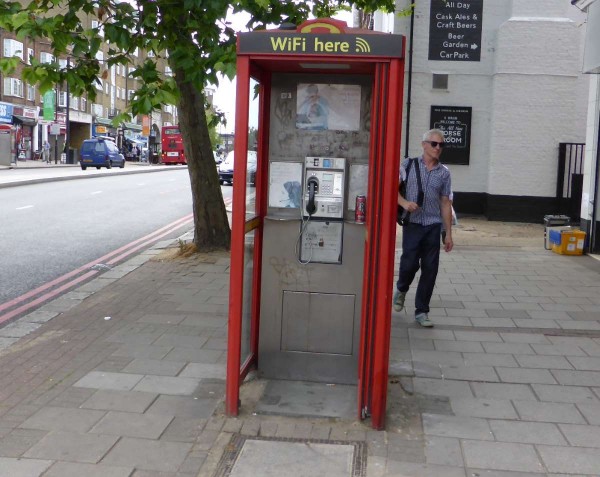
Amenity signage for parks and walks
This is the sign for the South Downs way, a walking track through East and West Sussex.
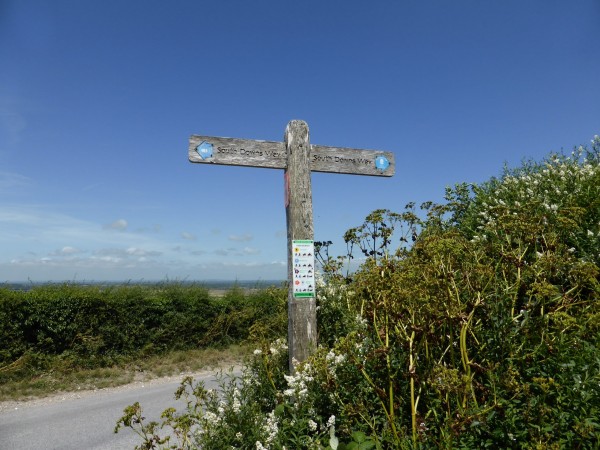
Anti sit/lie depositories
These are designed to stop people sitting or lying in a specific location by making it uncomfortable.
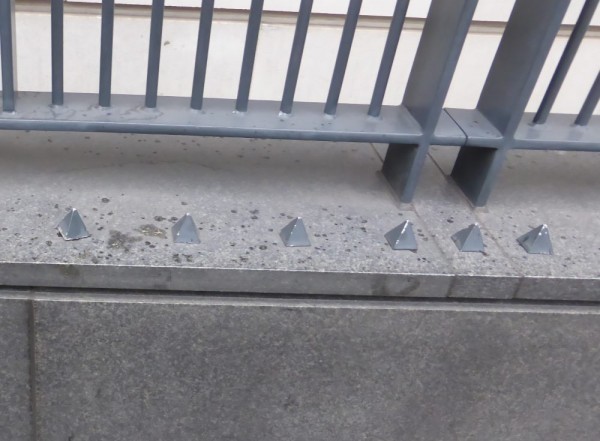
Tactile paving
Tactile paving helps blind and visually impaired people find important crossing points or to be able to follow a path in a much large pedestrian area.
Public benches
Sometimes designed traditionally and sometimes to a specific theme, benches must be durable for all weather conditions and mistreatments.
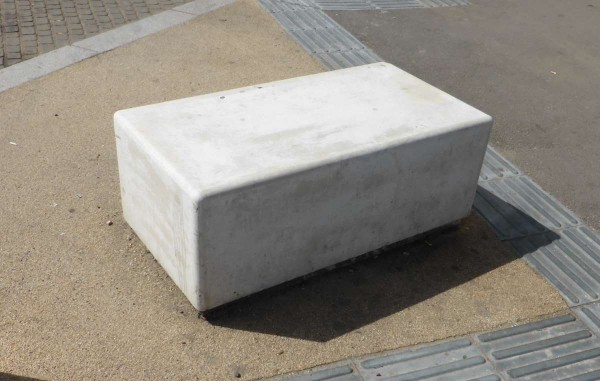
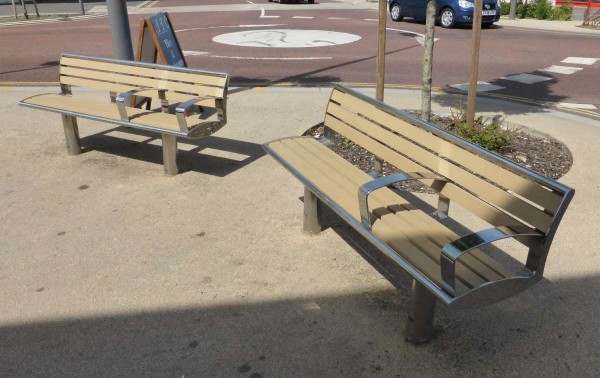
Path marker bollards
This bollard indicates the path is for both pedestrians and cyclists.
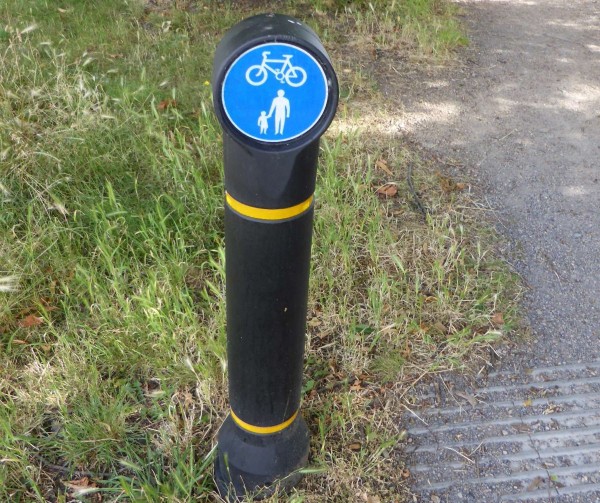
This bollard prohibits cyclists from the path.
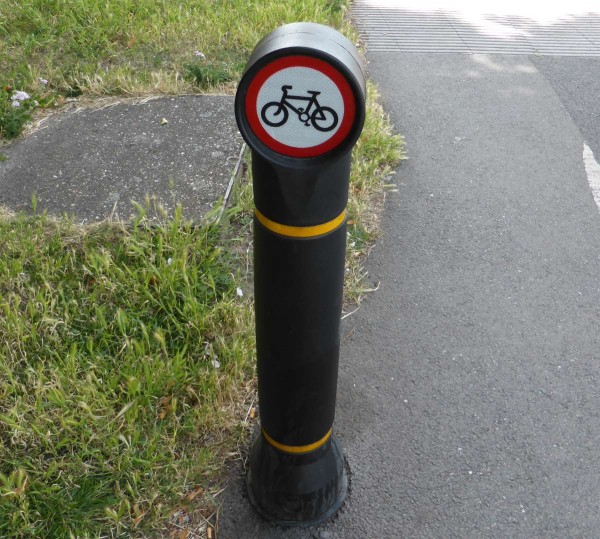
This old-style bollard contains a reflective panel as a general indication of its presence and separates the verge from the pavement.
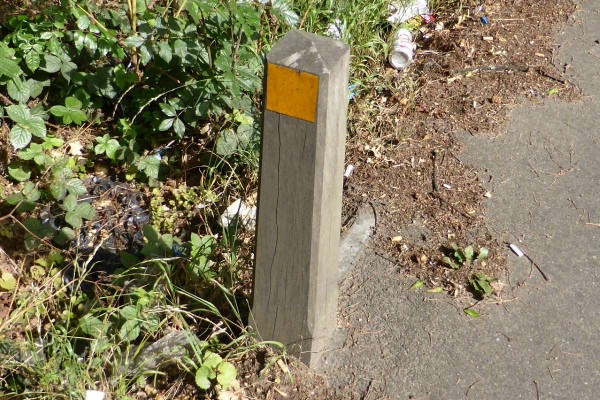
Direction and street signs
Street signs can give additional information, such as that it is a dead-end road (cul-de-sac).
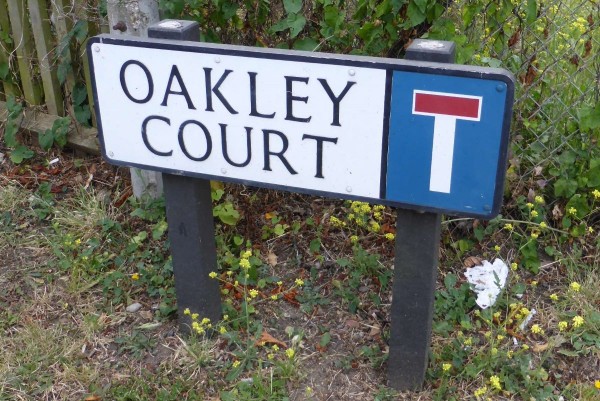
This sign is in the pavement in Hackbridge showing the direction to Beddington Farmlands.
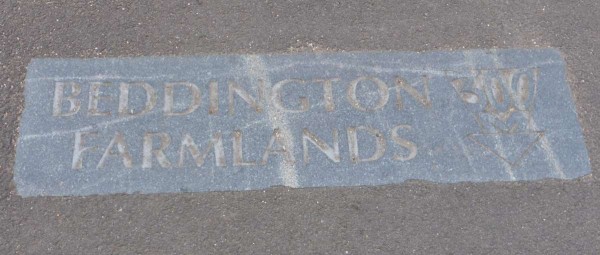
Signs
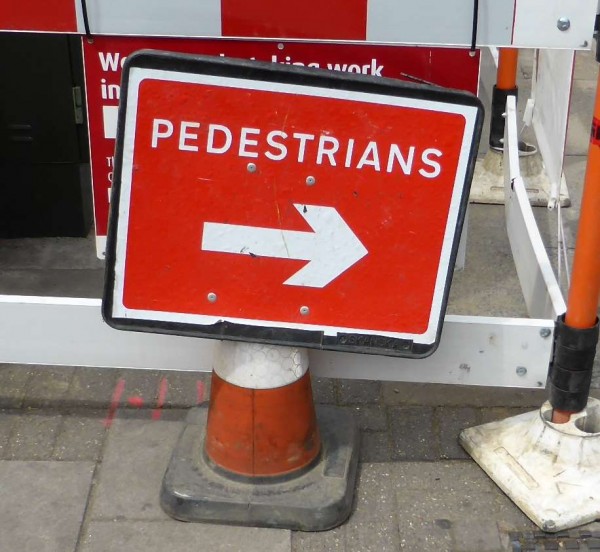
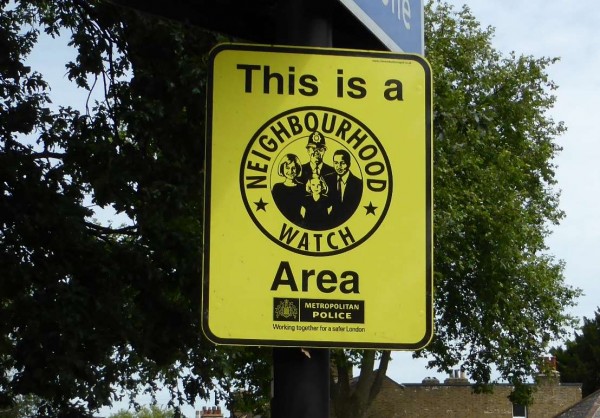
Vehicle-focussed
Charging stations
As electric cars become more common, expect to see more of these.
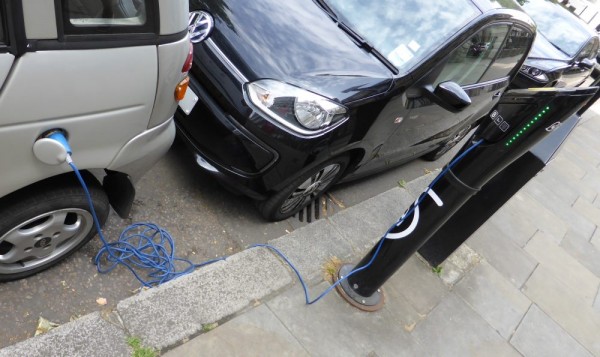
Crash barriers
In the photo below you can see the W-profile crash barrier (sometimes called Armco) plus a mesh fence on this dual carriageway in West Sussex.
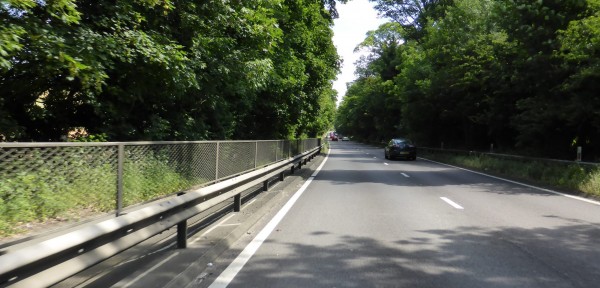
Grit bins
Used to hold grit for the roads in winter.
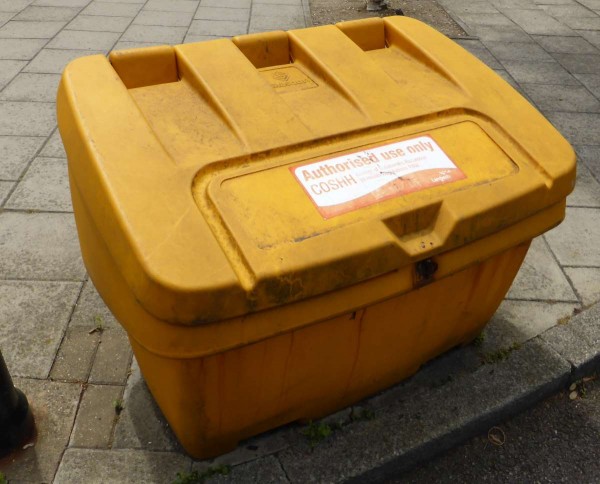
Bollards
Bollards come in many shapes and colours but are mostly posts, often with reflective material on them. The primary purpose of bollards is to warn traffic not to drive there.
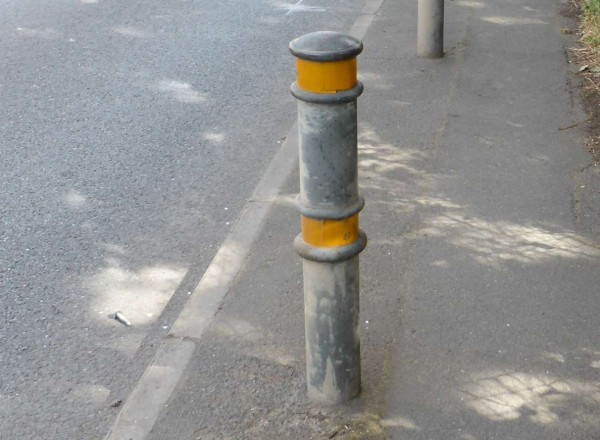
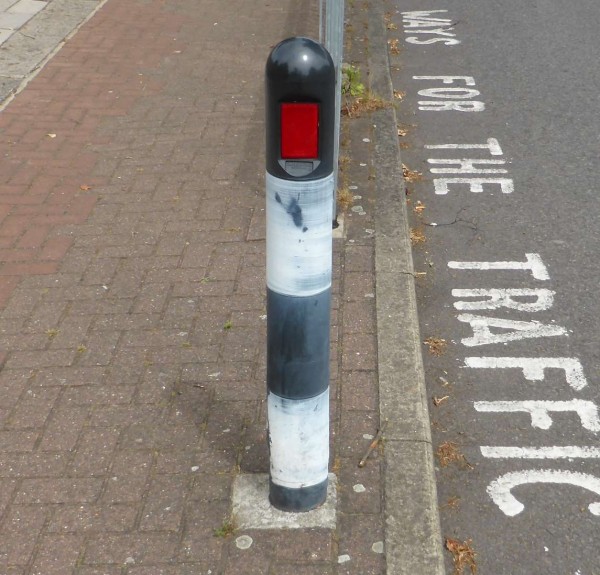
Some bollards are specifically designed to stop traffic using the footpath, like this one which is next to an area where pedestrians cross.
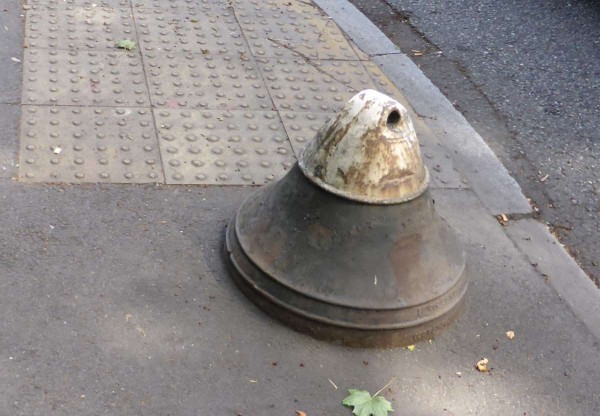
Bollards can also contain specific directions to traffic, e.g. to keep left
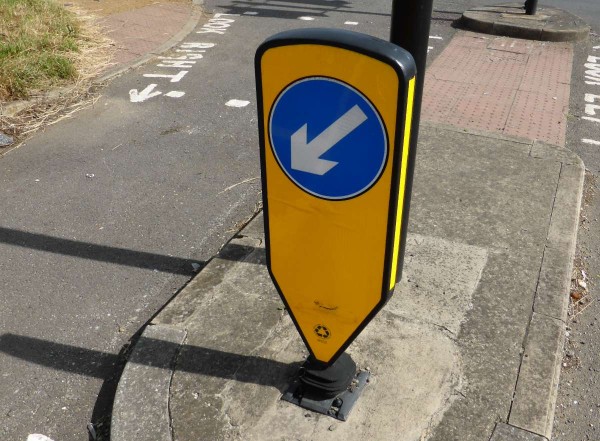
Gates
Gates can prevent access to vehicles at specific times, or only allow access to certain vehicles.
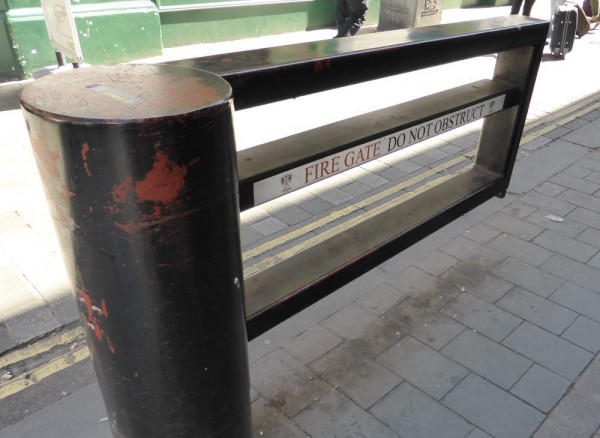

Post box / pillar box
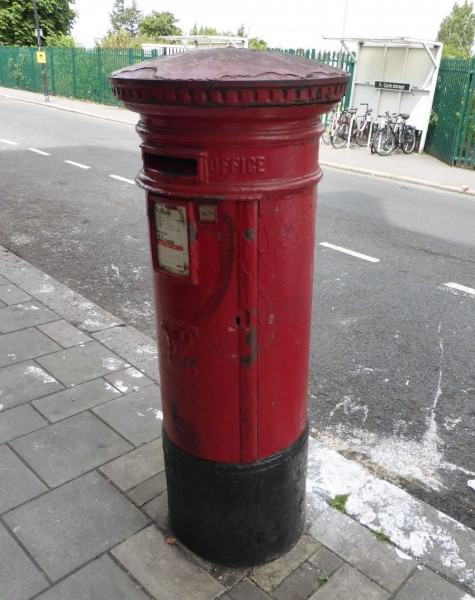
Signs
There are hundreds of types of signs to advise motorists.
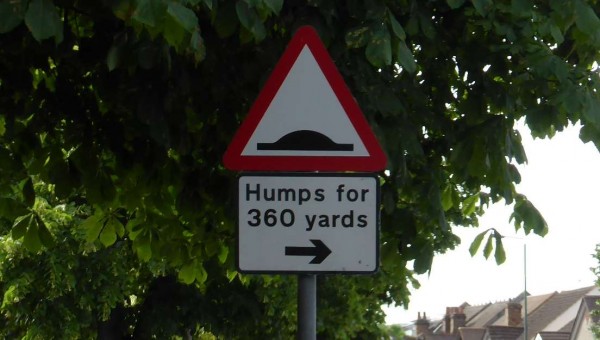
General
General street furniture can also include historic markers, bridge markers, water fountains and sculptures.
Notice the spelling error in bridge in the sign below.
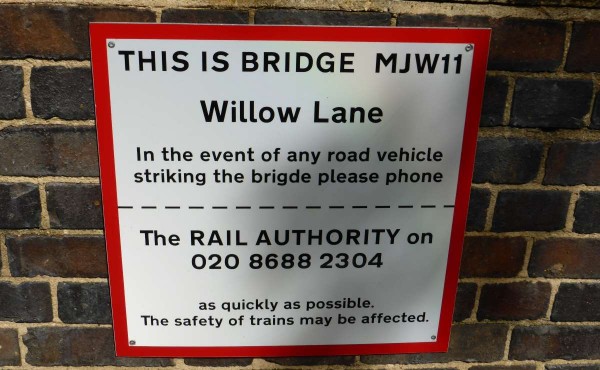
Lamp posts
Lamp posts can be fairly standard, or quite ornate as in the first image from Brighton
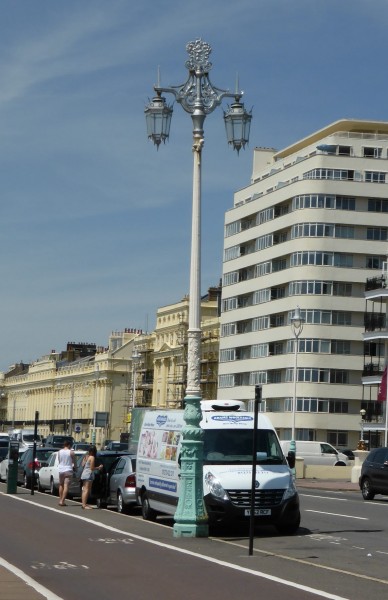
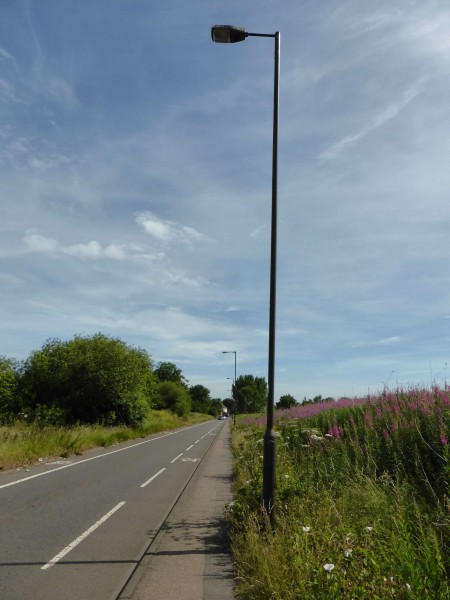
Fire hydrant
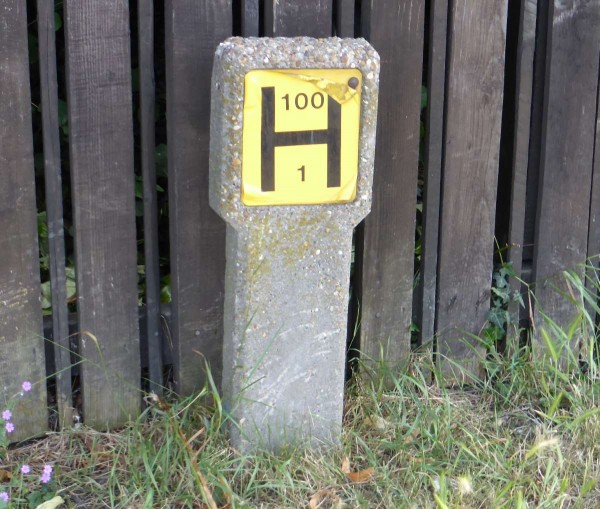
Borough and county signs
These signs help with navigation and can be used by local authorities for branding.
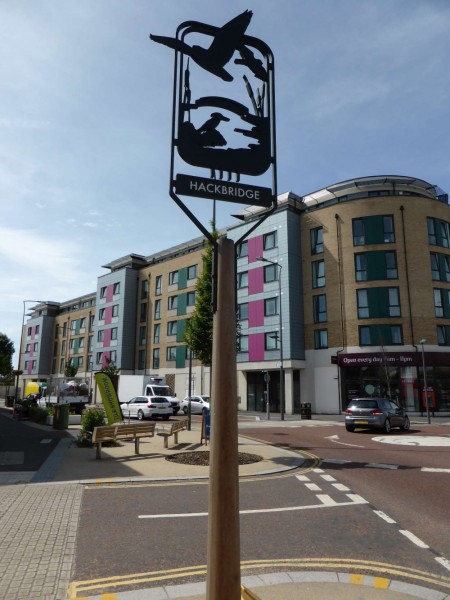
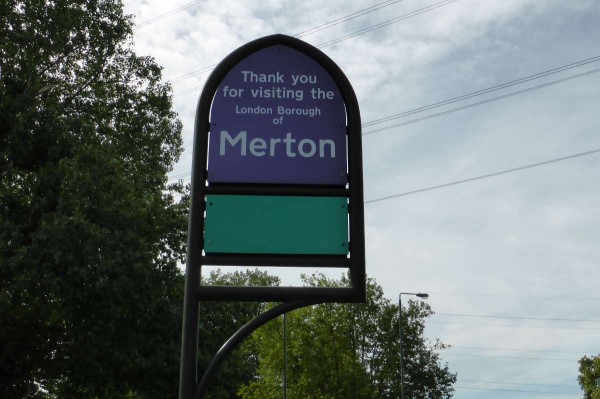
Railings
Railings help separate pedestrians and traffic, protect waiting pedestrians, or are designed to stop pedestrians crossing in a certain place. On a railing like this, motorcyclists must take care as they lean into the corner.
